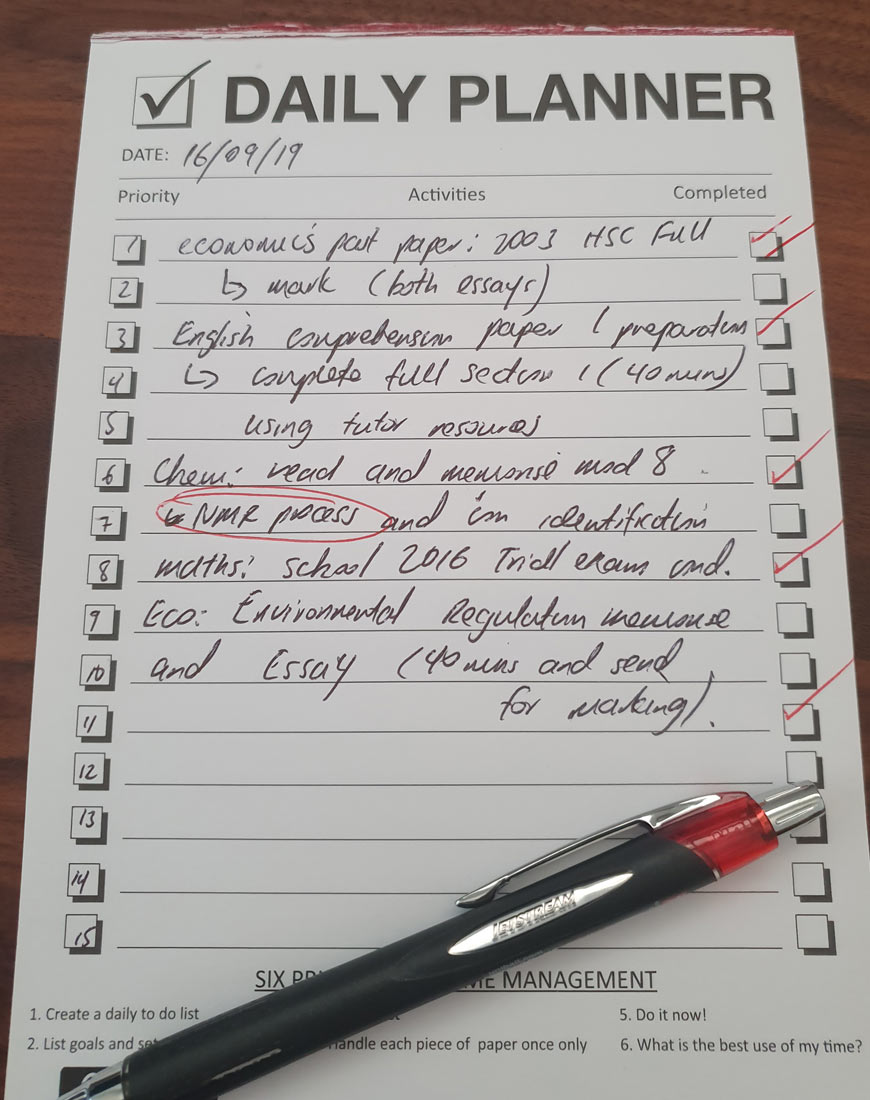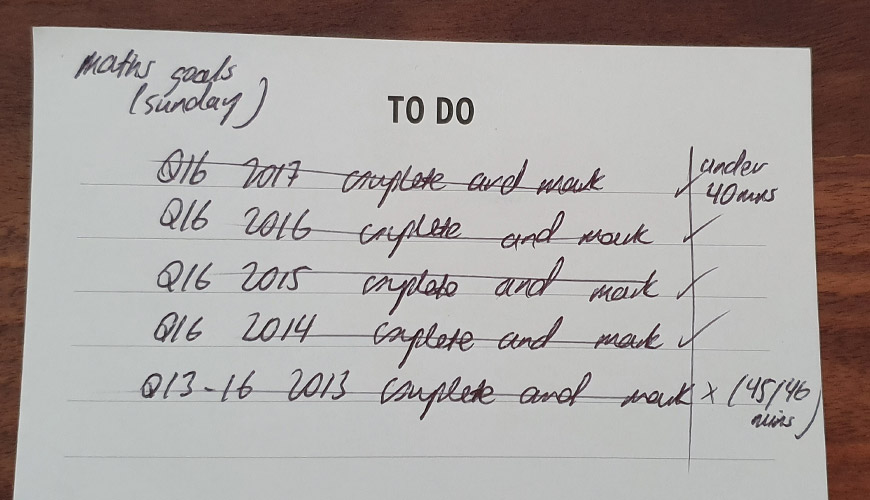Welcome to Matrix Education
To ensure we are showing you the most relevant content, please select your location below.
Select a year to see courses
Learn online or on-campus during the term or school holidays
Learn online or on-campus during the term or school holidays
Learn online or on-campus during the term or school holidays
Learn online or on-campus during the term or school holidays
Learn online or on-campus during the term or school holidays
Learn online or on-campus during the term or school holidays
Learn online or on-campus during the term or school holidays
Get HSC Trial exam ready in just a week
Get HSC exam ready in just a week
Select a year to see available courses
Science guides to help you get ahead
Science guides to help you get ahead
Need some motivation for the HSC? See how Dominic stays motivated throughout the HSC by setting goals.

Join 75,893 students who already have a head start.
"*" indicates required fields

Join 8000+ students each term who already have a head start on their school academic journey.
Thomas Hassall graduate and Matrix alumni, Dominic, explains how setting goals fuelled his HSC study motivation to achieve his best. He also shares other tips and tricks to beat the HSC game.
Dominic Marino
Thomas Hassall Anglican College
Bachelor of Commerce at the University of Sydney
I effectively used my Matrix theory lessons and continually worked on my weaknesses rather than remaining comfortable with my strengths.
Often, this resulted in me staying behind after class, coming to see Louise (my Chemistry teacher at Matrix) on the weekends or visiting a workshop for further clarification.
By using these three avenues of assistance, I rarely left Matrix or entered my school classroom without a thorough and clear understanding of the content taught. This allowed me to be ahead of my peers.
Start HSC Chemistry confidently
Expert teachers, comprehensive resources, one-to-one help! Learn from home with Matrix+ Online.
My high marks in English were largely due to my passion for each of my texts.
Although each one was unique, I worked hard to find a theme or overarching message which I understood.
I developed this understanding using my own thoughts and opinions rather than mindlessly regurgitating analysis shared from teachers and tutors.
By truly understanding my texts, reading them multiple times and taking time to write and refine ideas, I was able to develop an adaptable understanding of my texts. This greatly helped in unseen essay questions, or general analysis in the Paper 1 comprehension section.
Although it is not my best subject, I really enjoyed Economics.
Economics balances between logic & theoretical principles (which are important) and creativity.
This creativity is the element that helps you formulate your own ideas and arguments in essays and short answers.
Thus, economics became a subject, similar to English, where I could develop alternative arguments using my syllabus understanding and wider reading, rather than mindlessly rote learning statistics and examples.
I am not a naturally inclined mathematics person… So, Maths became my least favourite subject.
I spent countless hours doing past papers and difficult exam questions.
However, it seemed that no matter how hard I worked, I was never able to achieve full marks or reach the goals I established myself.
As this wore on, Maths changed from a subject with ‘one correct answer’ to one which became frustrating and laborious.
In hindsight, I should have completed difficult past paper questions throughout the year instead of cramming everything the month before an exam.
This would act as personal revision or ‘homework’ to help me iron out my silly mistakes (which were especially common during the year).
Broad goals are long term goals. These are any achievements you want to complete or attain over a long period of time.
Below is an example of my broad goals.
This was something I looked at my desk every time I studied, with one of my favourite quotes from my parents.
“Attitude is 100%”
But seriously, I figured if you assign each letter in “attitude” a number such as A=1, B=2, C=3 …….. attitude actually adds to 100! Try it yourself.
Seeing your broad goals every day is great motivation because you have your eyes on the final prize.
Mini goals are short term goals that can be achieved in a short period of time.
This is how I set my mini-goals:
1. In the morning before school, I outline tasks to complete after and during school.
2. During the school day, I jot more goals as things were assigned.
3. After school, I make detailed lists of things I want to achieve in that day/week
I have an image of my mini goals further down in the post.
Mini goals are effective because you know what you need to do every day to achieve your broad goals.
Teachers, fellow students, and parents will always nag you about the importance of goal setting.
However, it was not until a term into my HSC that I realised how integral it was to HSC success.
Without goals, studying becomes disorganised, fruitless and unproductive. Clear goals (which are timely, measurable and realistic) will always have a clear direction.
You can always split broader goals into many smaller goals. This makes tasks more manageable and achievable.
This is why I set goals:
Goal setting became a daily activity during my HSC.
In the morning before school, I outlined tasks to complete after and during school. During the school day, I jotted more goals as things were assigned. And after school, I made detailed lists of things I wanted to achieve.
As a result, my studying was very productive as I had a clear direction of set tasks which helped me stay motivated and focused. Sometimes, when I felt tired or unmotivated (which is often where people slip into procrastination), I would check my list and switch back to work.
Completing my tasks was more rewarding and positive in the long term than procrastinating. This is not to say that I never deviated off task… but setting daily goals and broader ones helped reduce distraction
Time is one of the most important resources during HSC.
During exam periods, the HSC can get chaotic. This results in poor performance, undesired stress and increased procrastination.
I ensured that every minute of study time was used effectively by setting goals to complete in certain time blocks.
During the period after Trials and before the HSC, I was able to complete over 30 past HSC and Trial papers for Economics and Mathematics. Meanwhile, most of my friends were cramming notes the nights before.
This is because I would often spread out my study in the months before, organised through goal setting, which minimised stress and maximised efficiency.
Below is an image of one of my lists simply written on blank paper in the lead up to the HSC – this was the primary way I highlighted my goals and daily tasks.

Thus, managing time allowed me to tackle more complex Essay responses and gave me free time with family and friends (which was a good break from the discipline of HSC preparation).
Another reason goal setting ties study – a usually difficult and unenjoyable activity – with achievement and success.
As result (for me), study became a part of my life and was fulfilling. I was able to achieve goals and progress in the same way a person levels up in a video game (a bit strange but trust me, it’s true).
Consequently, I became more competitive with myself. I pushed at my limits and aimed to achieve more daily study goal.
This ultimately helped me reach my end goal of entering into USYD.
But be careful!
Sometimes, I would sacrifice sleep or quality to just ‘get stuff done’… which is not good!
This is why goal setting and study must be timely and realistic. Don’t set yourself 9 Maths papers to complete in one day, because you will likely fail and feel deflated.
Instead, set one paper each day for a week, and do them carefully and under examination condition. This is SO much more effective, rewarding and positive in the long term for your academic performance.
Below is an example of how I managed my past paper use during the HSC, alongside my timing for each paper.

After utilising my goal setting strategies from the HSC summer holidays onward, my marks significantly improved.
I picked up and maintained a top 5 rank in English Advanced, Chemistry, Modern History and Economics, whilst also achieving above 90% in Mathematics Advanced.
At first, I achieved a below-average Chemistry mark for my first HSC assessment (ranked 10 out of 30).
However, by setting goals, I was able to target my week spots through regular and targeted study sessions. The weekly Matrix classes were really useful at helping me achieve my goals. I developed a sharper and more meaningful understanding of the content than at school and the Matrix workbooks were extremely notable for their detailed content on the new syllabus.
As a result, I was able to achieve an internal mark above 90, Rank 4 in my school cohort and a Band 6 in the subject.
Similarly, in Modern History, I achieved almost full marks in every section of my Trial Exam.
This was the fruit of months of consistent study and clear goals.
Each week I compiled and completed a small list of Modern History essay questions and handed it to my teacher for feedback.
Then, I would take that feedback and make these changes in my next essay, instead of editing of previously written essay.
By utilising this method across all my subjects, I was able to complete more past papers. Thus, I exposed myself to more difficult and obscure questions which prepared me well for my HSC.
An extremely helpful study skill I used during my HSC was one that I actually found in a Matrix blog from a 2017 HSC graduate.
Get rid of your phone completely during exams and in parts of my HSC year.
I wasn’t strong enough to maintain it for the entire year because disconnecting was socially difficult.
However, disconnecting from social media and the digital world is essential and increasingly helpful. You stay focused, achieve more and become more effective in your studies, as supported by a book I read by Cal Newport.
Also, I added a chrome extension called “Blocksite” onto my computer.
This completely blocked YouTube, Facebook and Reddit… the places of refuge for procrastination during my HSC.
By being proactive and accountable in limiting my distractions, I was able to get more work done and feel much better about my study sessions, rather than fall into the common cycle of ‘shallow’ work.
Another study tip is to use pen and paper as much as possible during the HSC.
Handwriting became a serious issue for me due to my increasing reliance on computers.
It developed into a messy, illegible train wreck toward the end of Year 12.
Where possible, write out essays, re-copy succinct versions of notes and even write out lists of tasks or past papers completed rather than using apps like notes etc.
I should have:
I wish I focused on time management and be more disciplined in my study sooner… rather than focusing on study methods in Year 12.
Ideally, these strategies are exercised and become way of life during Year 10 – 11.
I would get rid of my phone for the entire year to help reduce distractions, and place a blocker on my computer much earlier.
For economics especially, at one stage I had 60,000 words in notes for 4 topics… I wasted so much time cutting them out.
Instead, a stronger focus on past papers and succinct notes is a more effective method of study method for all subjects.
I quit football (a strong passion of mine) in Year 11. I wish I kept it because it would have provided a healthy release from hours upon hours of exhausting study.
The HSC is a long and bumpy road – set clear goals, establish a plan to achieve them and stay focused on the larger picture.
It is essential you use every minute of your time wisely and work effectively to maximise your marks – ultimately, it’s about working smart, not hard.
Although there are times where your subjects are unenjoyable, try and pick subjects you LOVE and are passionate about. After this, they become easier, and you no longer study for good marks, but you actually begin to enjoy learning and studying becomes enjoyable.
Sleeping is the best way of ensuring high performance. Once you effectively set goals and manage time, sleep becomes easier and your mental capacity increases in strength.
Use your study time effectively and allocate other time to your interests and passions. Keep study and leisure separate.
The HSC is difficult, and I had numerous setbacks over my Senior Years.
You must internalise your motivation and push through the difficulties. Work harder and understand your shortcomings.
Every failure, even your ATAR, is a learning opportunity.
Written by Guest Author
We have regular contributions to our blog from our Tutor Team and high performing Matrix Students. Come back regularly for these guest posts to learn their study hacks and insights!© Matrix Education and www.matrix.edu.au, 2025. Unauthorised use and/or duplication of this material without express and written permission from this site’s author and/or owner is strictly prohibited. Excerpts and links may be used, provided that full and clear credit is given to Matrix Education and www.matrix.edu.au with appropriate and specific direction to the original content.